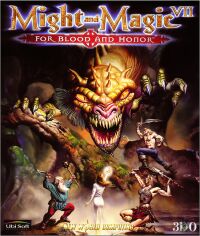|
|
|
Main News Forums Games Games Database Top 100 Release List Support Files Features Reviews Previews Interviews Editorials Diaries Misc Download Gallery Music Screenshots Videos Miscellaneous Staff Members Privacy Statement |
Lionheart SPECIAL System, Installment 2: Skills 2002-08-12 Lionheart is a computer role playing game that is being developed by Reflexive Entertainment in conjunction with Black Isle Studios. The game is an original title which uses an updated version of the SPECIAL character development system (from Fallouts 1 and 2) in a quasi-historical medieval Europe. Lionheart diverges from traditional high fantasy by placing the player on Earth in the 16th century in which history has taken a different path and magic has been released upon the world. Using a mix of historical and fictional locations and characters, the player progresses through a deep story while advancing through the classless character system.
Skills in the SPECIAL system and Lionheart From the Author: This article was originally going to discuss Skills and Perks, the two main things that a character gains as he/she goes up levels in SPECIAL. But it got pretty long by the time I had finished covering the basics of Skills, so the next installment will cover Perks. Skills There are several non-magic Skills in Lionheart. We are still debating on the inclusion of a few other skills that show merit for inclusion, but the ones that are currently in the game functioning are: The Numbers Every Skill in Lionheart is measured by a number and can range from a base value of 3 to a maximum value of over 200. The starting values of each skill are determined by a character's starting Attributes.
Every time you go up a level, you gain a set number of Skill Points to spend on your skills, thus increasing the ability of your character. How many Skill Points you get is based on the Intelligence of your character, making Intelligence a very valuable Attribute to have. Neat numbers, what do they do? Just to give you an idea of what goes on behind the scenes with Skills, here is a look at the equation used when you try to perform a simple melee attack. If the following statement is true, the attacker scores a hit: *Author's Note: The combat skill is actually modified by something called Attack Frequency. Attack Frequency is modal and is set by the user to one of five values: Hectic, Quick, Normal, Planned, and Calculated. These basically break down into a scale from very fast and inaccurate to very slow and very accurate. Also, the character's Luck plays a part in every equation. Similarly, a player can choose to target a specific body part in order to increase the chance for a Critical hit at the cost of a decreased chance to hit. For the purposes of this article, however, just note that this is a simplified version of the equation. So if you are using a one handed weapon and you stink at One Hand Combat, you stink with the weapon. Simple, eh? There's a couple of other interesting points about the equation, a character with a high Evasion skill can be just as difficult, if not more difficult, to hit than a character with a big old suit of armor on. Most of the equations used in the game work by opposing skills of characters (or things) in the world. This makes Skills critical in the development of the character. And while you can easily become good at many skills, to be really successful in the game, you'll want to become a master in at least a few skills. Lastly, we are really just beginning to balance out how the system works so that it will be fun and makes sense. This means that its extremely unlikely that all of the stuff in this article will remain exactly as written. The implementation of the system is a constant topic of discussion and changes occur. Especially as we enter playtest we expect to find problems that we'll have to address and fix. If you have any questions or think something we're doing is lame, log onto the Black Isle Studios message boards at www.BlackIsle.com and we'll try to address them. Overview When you gain a level in Lionheart, the one thing you'll always be doing is spending your Skill Points to improve your character. How and where you spend them is going to determine a lot of the direction and paths that are available to you and how successful you are in pursuing them. The next installment will cover Perks. Previous Installments:
Average Reader Ratings: 6.15 (59 votes) |
|||||||||||||||||||||||||||||||||||||||||||
|
All original content of this site is copyrighted by RPGWatch. Copying or reproducing of any part of this site is strictly prohibited. Taking anything from this site without authorisation will be considered stealing and we'll be forced to visit you and jump on your legs until you give it back. |
||




